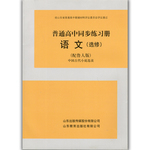题目内容
“A very disruptive(调皮捣蛋的) six-year-old child kicked my legs and clawed at my hand,” said one teacher. “ I broke up a fight and was kicked between my legs,” said another. Many people have heard stories like this. But the situation is more worrying still and it involves parents.
Every child, regardless of the circumstances into which they are born, has the right to achieve their potential, regardless of their parents’ wealth and class. And we recognize that, as a nation, it is a long way to achieve this goal. But with rights come responsibilities and what worries people is that we are in danger of ignoring the latter.
Far too many children are behaving badly at school, even to the point of being violent to staff. This is terrible enough, but it is hard to be surprised since many children are just mirroring the behaviour of their parents.
My members tell me that parents also come into school often and threaten staff and some staff have been attacked by a pupil’s parents. One father encouraged his child to start a fight on the playground before school started. A primary teacher reported that a parent shouted at him. We need to have a serious and sensible debate about the roles and responsibilities of parents and the support that they can reasonably expect of schools and teachers.
Children will not learn how to behave as social beings if they are stuck in front of the TV for hours every day. They need their parents to show an interest in them and to spend time with them, helping them to play with their peers(同龄人) and to learn the rules of social behavior.
Children are now arriving at school socially undeveloped, increasingly unable to dress themselves, unable to use the toilet properly, unable to hold a knife and fork and unused to eating at a table, Mary Bousted, general secretary of the Association of Teachers and Lecturers, writes in today’s Observer. Instead of taking responsibility themselves, too many parents expect teachers to control their children’s behaviour and wellbeing, she adds. Bousted says one mother blamed staff when she discovered that her 16-year-old son was smoking.
We are in danger of becoming a nation of families living separate lives under one roof. The bedroom, once a place to sleep, has become the living space for the young. Spending hours in front of computer screens, on social networking sites or being immersed(沉迷于) in computer games, children and young people spend little time with their parents. Parents are unable to monitor just what their children are watching.
Schools cannot right the wrongs of society and teachers cannot become substitute parents. Both parties need to work together. Parents must be helped and given confidence to take back control. They are responsible for setting boundaries for their children's behaviour and sticking to those boundaries. They are responsible for setting a good example to their children and for devoting that most precious of resources — time — so that children come to school ready and willing to learn.
1.In the opinion of the writer, what problem do people ignore?
A. The violence in the school
B. The study pressure of students.
C. The responsibilities of the students
D. The right to achieve students’ potential.
2.The underlined part in Paragraph 7 means _____.
A. parents care little about children’s life at home
B. parents and children live in their separate rooms
C. children don’t live with their parents in the same house
D. children live a different life from that of parents at home
3.The author’s attitude to the behaviour of parents may be ______.
A. dissatisfied B. indifferent
C. understanding D. tolerant
4.From the last paragraph, we can infer that ______.
A. teachers have no responsibility for playing the role of parents
B. schools can’t correct the wrongs that society does to teachers
C. students are responsible for making themselves known in society
D. parents should spend time with children to make them ready to learn
1.C
2.A
3.A
4.D
【解析】
试题分析:文章的主要内容是小孩儿在学校里面的表现差,甚至有暴力的倾向。在学校有时候对老师造成了伤害,其中的一个原因是家庭原因,是受了他们父母的影响。在家里,他们没有得到应有的教育,他们不会和别人交往,很多的父母把约束控制孩子的责任推给了老师,他们缺少与孩子的沟通教育。孩子把大多数在家的时间花在了单独相处或者沉溺于电脑游戏上。这是造成孩子没有得到良好发展的原因。
1.C段落理解题。Every child, regardless of the circumstances into which they are born, has the right to achieve their potential, regardless of their parents’ wealth and class. And we recognize that, as a nation, it is a long way to achieve this goal. But with rights come responsibilities and what worries people is that we are in danger of ignoring the latter.大意为:不管孩子的出生环境怎么样,也不管父母的财富和等级,每个孩子都有发展潜能的权力,我们已经意识到了这一点,但是在发展权力的同时,伴随而来的是责任,而我们去忽视了后者,故答案应为C。
2.A细节理解题。One father encouraged his child to start a fight on the playground before school started. A primary teacher reported that a parent shouted at him. We need to have a serious and sensible debate about the roles and responsibilities of parents and the support that they can reasonably expect of schools and teachers.在文中作者列举了两个例子,一个父亲鼓励他的孩子在操场上去和别人打架。一对孩子的父母对一位老师训斥,父母需要担起他们的责任和角色。由此可以看出作者对父母的表现是不满意的,故答案应为A。
3.A段落大意题。最后一段的意思为:学校没有能力去改变社会上的一些错误,老师也不能代替父母,双方需要的是合作。父母要重振他们管理孩子的信心,父母有责任为他们孩子的行为设定一定的界限并且去坚持这个界限。他们也有责任去为孩子树立一个好的榜样。为他们的孩子上学学习做好准备。故答案为A。
考点:社会现象类文章的阅读理解。

 海淀黄冈名师导航系列答案
海淀黄冈名师导航系列答案 普通高中同步练习册系列答案
普通高中同步练习册系列答案 优翼小帮手同步口算系列答案
优翼小帮手同步口算系列答案
| |||||||||||||||||||||||||||||||||||||||||||||